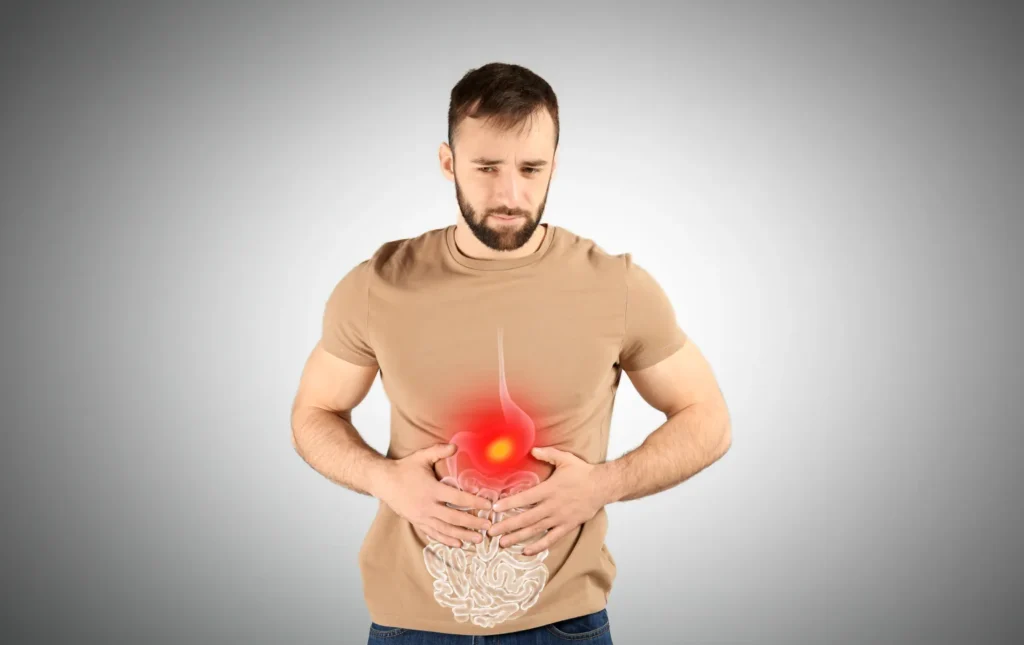Maintaining poor eating habits for a long time can cause gastrointestinal problems, from poor digestion to acute pancreatitis. The latter is mostly caused by alcohol consumption and gallstones. Doctors recommend that if you have severe abdominal pain you should consult a specialist because it could be this disease.
The pancreas is an elongated organ located in the back of the abdomen, below the stomach. It is responsible for producing digestive fluids and the hormone called insulin. “This organ has glands that produce important enzymes for digestion, as they help chemically break down fats and proteins in food,” says Arturo Castillo, a gastroenterologist.
Pancreatic juices and bile released into the duodenum, a duct that connects the pancreas to the common bile duct, help the body digest and absorb nutrients from food so that they reach the blood and are used by the body’s cells.
The pancreas can be affected by several diseases, but the most common are acute or chronic pancreatitis and cancer. “ Pancreatitis is related to the inflammation of this organ and cancer to the appearance of tumors in the area,” adds Castillo.
Why acute pancreatitis occurs
Pancreatitis is an inflammation of the pancreas that occurs when the enzymes it produces are activated while the pancreas is still in the pancreas and not when they have reached the duodenum. This causes the cells to become irritated and then inflamed.
This disease is divided into acute and chronic. In acute pancreatitis, the inflammation develops very quickly, but fades away within a few days or, in some cases, months. In chronic pancreatitis, the pancreas remains constantly inflamed and causes permanent damage, says Eduardo Ortiz, an internist.
Acute pancreatitis is most common in people between the ages of 40 and 50. In more than 70 percent of cases, the disease is caused by excessive alcohol consumption and gallstones.
“Acute pancreatitis occurs when there are gallstones and one of them blocks the passage of pancreatic juices that go to the intestine. The pancreatic gland produces almost a liter of digestive secretions a day, so having the duct blocked causes inflammation and very strong pain in the upper abdomen,” explains Castillo.
Most cases of this disease are mild and do not affect the function of the pancreas when treated promptly. Otherwise, it could become a serious case requiring more severe treatment and, perhaps, surgery.
Symptoms of acute pancreatitis
Acute pancreatitis is characterized by symptoms such as pain in the upper abdomen, which can extend to the back. “The pain can appear gradually or be sudden and last for several days,” adds the professional.
Fever, nausea, vomiting, a fast heartbeat, and abdominal swelling or tenderness may also occur. If you feel that the pain is getting worse and you have any of the above symptoms, it is recommended that you consult a doctor immediately as the discomfort could be life-threatening.
When acute pancreatitis is caused by gallstones, the pain usually begins suddenly and reaches its maximum intensity within a few minutes. When alcohol is the cause, the pain usually appears after a few days. Whatever its cause, the pain subsequently remains constant and intense, has a penetrating character, and can persist for days, the MSD Manual states.
Those who develop it due to alcohol abuse may not have any symptoms other than moderate to severe pain, while others feel very ill, look sickly, are sweaty, have a rapid pulse (100 to 140 beats per minute), and have rapid, deep breathing.
Treatment
If you have symptoms of acute pancreatitis, you must see a doctor as soon as possible. The specialist will perform a physical examination to determine if your abdomen is tender and if the muscles of the abdominal wall are stiff.
If he or she suspects inflammation, he or she will order blood tests and imaging tests, such as X-rays or CT scans.
Treatment for mild acute pancreatitis in most cases consists of a short hospital stay where intravenous fluids are administered, painkillers are given to relieve pain, and the patient remains at rest so that the pancreas can rest and reduce inflammation. In cases of moderate to severe pancreatitis, more days in the hospital will be required.
People with severe acute pancreatitis are admitted to an intensive care unit where their vital signs and urine output are monitored continuously. Blood samples are drawn repeatedly to monitor various blood components, including hematocrit, sugar levels, electrolyte levels, white blood cell count, and blood urea nitrogen concentration.

